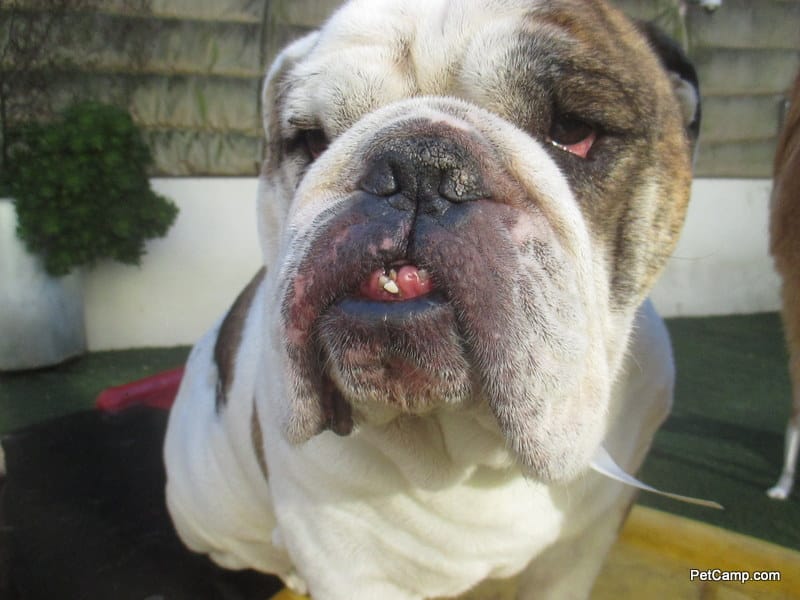
This summer the University of California at Davis released a study that the English Bulldog’s gene pool may be too small to save the breed. The study was widely reported locally and was recently reported in DVM360 (a veterinary medicine journal). In short, the study revealed that the traits we have spent hundreds of years creating are exceedingly detrimental to the dog’s health. Of course, some of what we have bred for are desired characteristics that make the English Bulldog such a popular and loved breed. But there are lots of non-desired results of this breeding, including cleft palates, hip and elbow dysplasia, spinal problems, dental, skin, heart, eye and immune system problems, of which sadly many English Bulldog pet parents are all too familiar. In situations like this, one way to solve the problem is to breed dogs without these issues so that the offspring has a better chance of not developing these same problems. Sadly, the continued quest for the same physical characteristics has resulted in a loss of genetic diversity such that there is not enough genetic diversity to correct the problems. According to the experts at U.C. Davis this means that the English Bulldog as we know and love it simply cannot exist for much longer, and the only way to save the breed is to mix it with other breeds (which of course means that it won’t be a pure breed any longer).
So what does this mean? Is this another example of humans messing with nature and we are reaping what we have sown? Does this send a message about pure bred dogs in general? Should we stop breeding for the characteristics we love?
Thanks for reading.